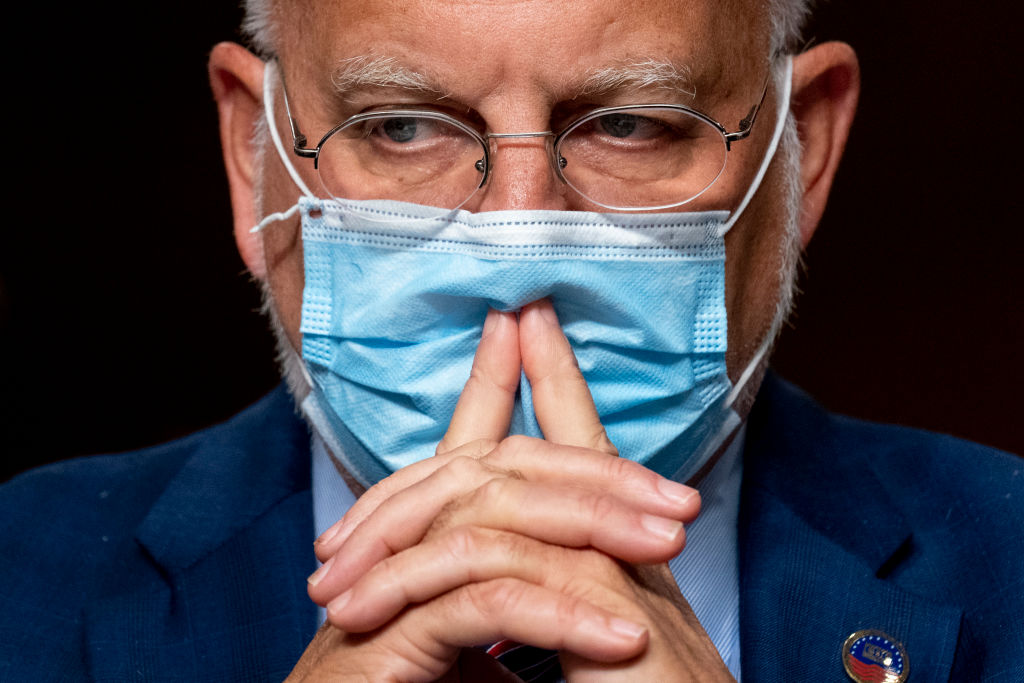
New language acknowledging that the virus that causes COVID-19 spreads more easily than once believed disappeared from a U.S. Centers for Disease Control and Prevention website Monday just days after being published, replaced with a message saying the previously uploaded information was a mistakenly posted “draft version of proposed changes.”
The now-missing language, which was posted Friday to a page titled “How COVID-19 Spreads,” cited small droplets called aerosols as the most common method of viral spread—reversing the agency’s previous stance that the virus was mostly spread by larger droplets that typically don’t travel as far. The move was lauded by scientists who have for months argued that aerosols account for a significant share of coronavirus transmission. (Mounting pressure from experts led the World Health Organization to acknowledge the threat of aerosol spread this past July.)
“CDC is currently updating its recommendations regarding airborne transmission of SARS-CoV-2 (the virus that causes COVID-19),” reads a note on the altered page. “Once this process has been completed, the update language will be posted.”
In the original change, the CDC cited “growing evidence that droplets and airborne particles can remain suspended in the air and be breathed in by others, and travel distances beyond 6 feet.” It also cautioned against spending time at poorly ventilated indoor locations.
Now the page cites risk of spread “between people who are in close contact with one another (within about 6 feet)”—contradicting the public health guidance posted Friday.
The CDC’s confusing about-face comes amid reports that political appointees at the Department of Health and Human Services, which oversees the CDC, had been influencing the agency’s weekly health reports to make the U.S. pandemic situation seem better than it is in reality. Monday’s reversal may also increase public skepticism about the agency’s messaging on COVID-19 more broadly.
The CDC did not immediately return TIME’s request for comment.
More Must-Reads From TIME
- The 100 Most Influential People of 2024
- Coco Gauff Is Playing for Herself Now
- Scenes From Pro-Palestinian Encampments Across U.S. Universities
- 6 Compliments That Land Every Time
- If You're Dating Right Now , You're Brave: Column
- The AI That Could Heal a Divided Internet
- Fallout Is a Brilliant Model for the Future of Video Game Adaptations
- Want Weekly Recs on What to Watch, Read, and More? Sign Up for Worth Your Time
Write to Alejandro de la Garza at alejandro.delagarza@time.com